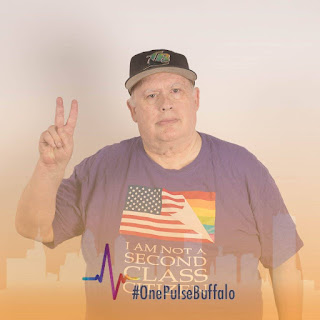J.O. Cole was the richest man in Indiana. His father had been a shoemaker, but J.O.--the initials stood for James Omar--went out to California during the Gold Rush and came back a wealthy man to Indiana, where he multiplied his wealth by way of timber and coal and other enterprises. J.O. married Rachel Henton, and when their daughter, Kate Cole, was born in 1862, nothing could be too good for J.O.'s girl. J.O. gave Kate expensive clothes, expensive tastes, and an expensive education that included music and dance.
J.O. naturally expected his Kate to choose a husband from the ambitious world of high-powered businessmen, someone who could take over his financial empire if and when J.O. ever chose to let go of the reins. But Kate Cole had a mind of her own, and the husband she selected was Sam Porter, said to be a weak and ineffectual, although modestly successful, pharmacist from her hometown of Peru, Indiana. One can only speculate, but one can at least suspect that Kate was too much like her father to want to marry a man of her father's stamp, and instead deliberately chose a husband that shecould rule.
J.O. fumed and grumbled, but in the end Kate got her way, and J.O. paid first for the wedding and then for the expensive lifestyle of the wedded couple. And then, on June 9, 1891, in Peru, Indiana, Kate's son, J.O.'s grandson, was born, and they named him Cole Albert Porter.
From the age of six, the little boy studied first violin and then, at age eight, piano, and soon he showed real talent for both. When he decided that he didn't like the violin, he devoted all his energies to the piano, practicing two hours every day. Frequently, his mother Kate would join him at the piano, and together they would make up wicked parodies of the popular songs of the day.

Kate knew that her son had talent, and did everything she could to pave the way for musical fame. Early on, she subsidized the student orchestra at the local music school, making sure that her son, dressed in velvet and lace, was the featured violin soloist. There were rumors that she also took steps to ensure that the local papers gave her son the right reviews. When Cole was ten years old, he began composing music, and his mother paid to have his compositions published and sent copies to family and friends. And when, at age 14, she sent Cole off to the exclusive Worcester Academy in Massachusetts, she decided that people would be more impressed with her son's accomplishments if her son were only twelve instead of fourteen. And so, she made Cole twelve, officially at least, by arranging some small changes in his school records.
When Cole was sent east to boarding school, J.O. was furious. J.O.'s plan was that his grandson would stay in Indiana, learning about the family business empire and preparing to eventually take it over. J.O. was so angry, in fact, that for two years he refused to speak to Kate. But, as always, Kate got her way.

Cole's stay at the Worcester Academy was a successful one. In later years, he remembered one of his instructors there, Dr. Abercrombie, as an important influence. Cole said that Abercrombie taught him about language and meter, and that, in a song, "Words and music must be so inseparably wedded to each other that they are like one." When he graduated from the Academy in 1909, Cole was the class valedictorian.
Next came Yale, and Cole's undergraduate years at Yale were one of the richest periods of his life. He was a huge social success, famous on campus for the songs he was constantly writing and singing. He sang solos with the Yale Glee Club. He wrote football fight songs, some of which continued to be sung long after he left Yale, especially "Bingo Eli Yale" and the "Yale Bulldog Song". And he wrote songs for six full scale musical comedies, produced by the Delta Kappa Epsilon fraternity and by the Yale Dramatic Association. Some of these shows went on tour around the country, and Cole toured with them, reveling in the parties and good fellowship that went with the tours. In all, Cole wrote around 300 songs while he was at Yale. And when he graduated in 1913, his classmates voted him the "most entertaining" member of his class. In his Yale years, Cole made many connections that would be professionally and personally important to him for the rest of his life.

At J.O.'s insistence, Cole then enrolled in Harvard Law School, where he roomed with a young man named Dean Acheson--yes, the Dean Acheson who would become Secretary of State from 1949 to 1953. But Cole had no interest in becoming a lawyer, and his activities continued to be mostly musical. Many of Cole Porter's stories about himself were inventions, but, according to Cole, the Dean of the Law School, Ezra Ripley Thayer, took him aside one day, during Cole's second year at the Law School, and told him, "Don't waste your time--get busy and study music." Whether the advice really came from Thayer or not, Cole took it, and transferred to Harvard's School of Arts and Sciences in 1915, where he studied for a graduate degree in Music. Cole told his mother Kate about the change in career plans, but both of them allowed J.O. to believe that Cole was still earnestly pursuing his Law School degree.
Cole left graduate school in 1916 and moved to New York City, where he lived at the Yale Club. His first show, See America First (1916), lasted for only 15 performances, but the audience was full of prominent socialites, and Cole himself quickly became a familiar figure in social circles in New York.
In July 1917, Cole moved to Paris. The First World War was raging, and Cole invented stories about joining the French Foreign Legion and performing numerous heroic exploits that were duly reported in the press back home and that remained part of Cole's official biography throughout his life. Not a word was true. In fact, Cole was enjoying Paris's fabulous social life, an endless stream of extravagant parties full of international celebrities, members of the minor nobility, cross dressers, artists, and eccentrics, accompanied by alcohol and other drugs, and featuring an assortment of gay and bisexual activity.

Linda Lee Thomas from Louisville, Kentucky, was another prominent socialite in Paris. Divorced from an abusive husband, wealthy, and considered one of the most beautiful women in the world, Linda soon became one of Cole's closest friends. She was older than Cole, and was quite aware of his homosexual preferences and activities. Nevertheless, on December 19, 1919, Cole and Linda were married. Although sex was never a part of their relationship, they truly liked each other, and Linda was deeply dedicated to Cole's career, so, in its own way, their marriage proved a close, successful, and mostly happy one.
Cole and Linda led a glittering social life in Paris, Venice, and the Riviera. Their Paris home had platinum wallpaper and zebra skin chairs. For one extravagant party in Venice they hired 50 gondoliers and a troupe of circus acrobats. For another party, they hired an entire ballet company.
But while his social life was dazzling, Cole's career was moving frustratingly slowly. He studied briefly with the noted French composer Vincent d'Indy. He had a few small successes, contributing songs to such shows as Hitchy-Koo 1919 and the Greenwich Village Follies of 1924. And in 1923 he had a success in Paris with a short ballet called Within the Quota. But Broadway producers had little interest in his work. However, in 1928, Irving Berlin recommended Cole to the producers of a "musicomedy" called Paris, starring Irene Bordoni. Cole wrote five songs for the show, and one of those songs "Let's Do It (Let's Fall In Love)", became Cole's first big success....



















